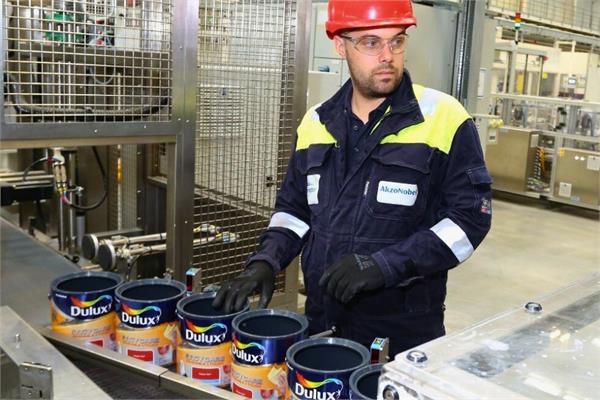
This move is part of AkzoNobel’s broader strategy to innovate sustainably and help customers reduce their own environmental footprints through the products they choose.
The international paints and coatings supplier AkzoNobel is taking a significant step towards reducing the carbon footprint of its decorative paints in the EMEA region by sourcing lower-emission raw materials from BASF. The partnership underscores both companies' commitment to addressing Scope 3 emissions and accelerating the shift towards more sustainable solutions within the industry.
Under the new agreement, AkzoNobel will use BASF’s biomass balanced (BMB) ingredients, which integrate renewable feedstocks such as bionaphtha and biomethane into the production process through a certified mass balance approach. Crucially, the sustainable materials require no changes to existing paint formulations or manufacturing processes, ensuring the end products maintain their established quality and performance.
“Integrating BASF’s BMB ingredients into our higher volume consumer products will help us achieve a significant overall impact in terms of carbon footprint reduction. Our partnership means the carbon footprint of any paint we produce using the BMB approach will be cut by at least 5% to begin with, compared with the same formula produced using 100% fossil-based material,” has stated Wijnand Bruinsma, AkzoNobel’s Director of Sustainability.
The collaboration enables AkzoNobel to offer decorative paints with a carbon footprint reduced by at least 5%, marking a major stride in bringing lower-carbon products into the mainstream. The acrylic binder, a key component in decorative coatings, is among the BASF-supplied ingredients now produced with a substantially smaller environmental impact. The entire process is certified by an independent third party, guaranteeing transparency and credibility.
“We’re proud to support AkzoNobel accelerate its sustainability agenda. Through our broad portfolio of sustainable and low carbon products, we’re enabling the company to offer its customers products with a lower carbon footprint. We also provide data, tools and expertise, empowering AkzoNobel to make informed decisions. The collaboration demonstrates the strong commitment of both companies to a more sustainable future. AkzoNobel in the UK is already preparing to launch its upgraded Dulux Easycare range – which uses the reduced CO2 ingredients – during Q2 this year. It’s the first time the company has used certified mass balanced products (replacing fossil fuels with renewable raw materials) for an acrylic binder. We can’t drive the reduction of Scope 3 carbon emissions by ourselves, that’s why collaboration is so important. Partnerships like this play a key role in making change happen quicker and teaming up with BASF will help us create a scalable approach to more sustainable solutions. AkzoNobel is working to achieve RedCert2 certification for all relevant production sites in Europe – a recognized mass balance standard for the chemical industry,” has added Jörg Niebergall, Senior Vice-President, Dispersions Europe at BASF.